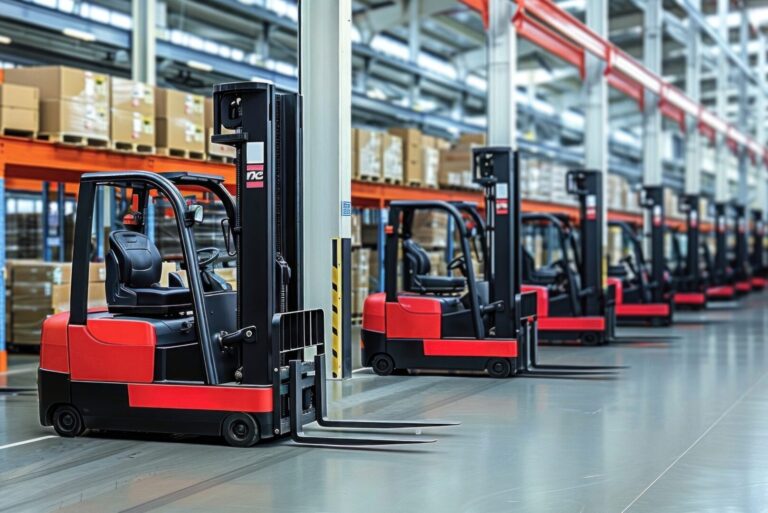Adjusting to Electric: How Drivers are Embracing California's Electric Truck Mandate
January 3, 2024
Over the past decade, California fleet owners have seen a major push in electric and alternate fuel vehicles through legislation and financial incentives. While the transition to electric vehicles has often been associated with environmental concerns, the appeal of electric trucks for both drivers and fleet owners goes beyond sustainability, reaching into factors of performance, cost-efficiency, and overall ease of operation.
This article analyzes the factors that are allowing electric trucks to outcompete traditional diesel trucks.
Financial Benefits of Electric Trucks

Unlike traditional internal combustion engine (ICE) vehicles, electric trucks use a simple one-speed transmission and don’t require any oil changes or flushes, leading to an average of savings $600 for every 15,000 miles driven. Many fleet owners are finding that less time spent on maintenance not only improves their bottom line but also reduces off-road time, allowing electric trucks to stay on the road longer.
In addition to lower maintenance costs, one of the most compelling reasons for fleet owners to make the switch to electric trucks is the cost-saving potential of electricity as a fuel source. Electricity is typically cheaper than diesel fuel on a per-mile basis, especially in California, allowing EV owners to significantly cut down on their fueling expenses.
While the initial investment in an electric truck may seem daunting, the long-term benefits quickly begin to outweigh the upfront costs. This is especially true for those who take advantage of the many financial incentives available to California electric truck owners, like the Low Carbon Fuel Standard (LCFS. The LCFS enables fleet owners to earn credits for every metric ton of carbon offset through the use of EVs. These credits offer California fleet owners additional revenue streams over the life of their electric trucks, substantially mitigating the costs of their vehicles.
Learn more about financial incentives that help California fleet owners ease the transition to electric: California Electric Truck Incentives: Easing the Transition
Benefits of Electric Trucks for Drivers
While the financial incentives of electric trucks in California present clear benefits for fleet owners, many drivers have struggled to get on board with the transition. However, industry experts have reported a high rate of drivers advocating for electric once they make the switch, citing improved operations and fewer health concerns.
Improved Operations
One of the standout advantages that drivers are quick to appreciate is the markedly smoother and quieter rides offered by electric trucks. Traditional diesel engines, known for their loud and rumbling operation, are being replaced by electric motors that provide a near-silent driving experience. This shift not only enhances the comfort of drivers during long hauls but also contributes to a more peaceful coexistence with other road users and nearby communities.
Electric trucks also come with a substantially lower risk of on-road mechanical breakdowns. Due to the simplicity of their engines and automated warnings, electric truck drivers often have safer rides than traditional ICE truck drivers.
A lingering concern for many California electric truck owners is finding reliable access to charging stations, especially for long-distance and rural travel. However, fuel suppliers across the state are working to improve this issue: Pilot Co. Travel Centers Expanding Access to Electric Charging Stations in 2024.
Reduced Health Concerns
In addition to improved operations, many drivers have reported a significant improvement in their long-term health while driving electric trucks. Drivers who endure long-term shifts often suffer from back and joint pains as a result of the constant vibrations of ICE trucks, and many even suffer hearing loss due to long-term exposure to loud engines. However, electric trucks are significantly smoother and almost silent for drivers, resulting in less long-term health effects for their operators.
The absence of fumes is another factor contributing to the growing preference for electric trucks. Diesel trucks have long been associated with the acrid scent of exhaust fumes, which not only affects the health of drivers but also the surrounding communities. Electric trucks, in contrast, produce zero emissions directly from the vehicle, leading to a cleaner working environment for drivers.
While the transition to medium- and heavy-duty electric vehicles has been slow, the switch to electric trucks is quickly gaining momentum in commercial sectors.
Learn more about the advantages of switching to electric, and how Smart Charging Technologies can help you save with our Smart Rebates™ program.
Related Posts









